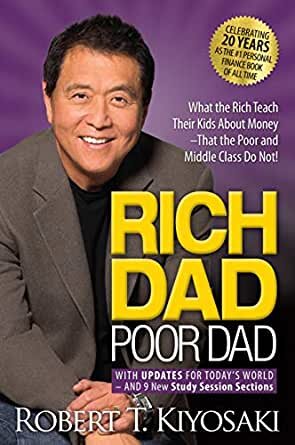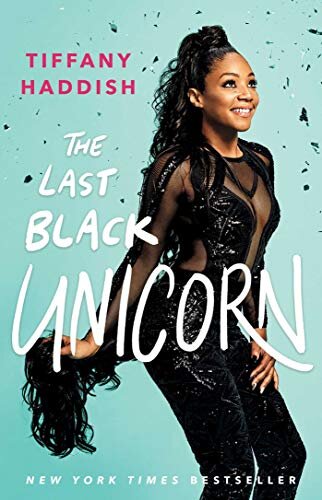If you want to improve your business and grow look into some of these amazing entrepreneurial books listed below (in no particular order). Each page is packed with information, advice and real-life experiences from business leaders who have ‘made it’, which you can directly apply to your journey as well.
1. All Marketers Are Liars by Seth Godin
Godin speaks to how marketers actually think and how they go about creating stores - or rather lies - impacting the lives of many without thinking of the consequences. While he exposes marketers, he also includes useful tips on how to build your brand and tell a story, to better market your business.
2. Beating the Odds by Eddie Brown
Brown takes you on a journey on how he created Brown Capital Management through many economical crises’ such as 9/11 and the financial recession in 2008. How a young boy who lost his mother at a young age, went through difficult struggles to pave his own path growing up, and becoming the CEO of his now billion-dollar company.
3. Behold the Dreamers by Imbolo Mbue
Based on the 2008 financial crisis, a young woman speaks to her immigrant experience. A story more relevant than ever in our present political climate as she goes on about what it is to be an immigrant in the USA and the courage she shows.
4. Crush It! by Gary Vaynerchuck
Vaynerchuck shows you just how to build up your own web presence and turn it into a brand, creating your own business while making sales through the internet. After all, he grew his family’s business into a $4-million dollar company to a $60-million one by working the internet.
5. David and Goliath by Malcolm Gladwell
Gladwell dives into how we as humans, think about the challenges that life has to offer while giving insight on what it means to face discrimination, suffer from a loss of a parent - or anything really that has to do with having to struggle. Reading this will teach you about things you didn’t think you needed to know like: avoiding any ‘elite colleges’ like Harvard.
6. Female Innovators at Work by Danielle Newnham
This book is meant for women who own their own businesses, including case studies and interviews from other successful women CEOs from different areas across the vast and diverse market talking about their journeys and the challenges, successes and lessons learned along the way to where they stand now.
Also check out 18 Podcasts by Women Entrepreneurs.
7. Getting to Yes by Roger Fisher and William Ury
Despite it being 30 years since its first publication, this book has continued to be circulated among business owners, teaching each individual how to go about negotiating and resolving any conflicts on any levels based on Harvard’s Negotiation Project.
8. Girl Code by Cara Alwill Leyba
Leyba gives you a look into what it is like not only being a female entrepreneur but also dealing with other female entrepreneurs as well, and how hard and difficult it can be - however, it shows the positivity of when women are there to support one another and the great outcome of it. Leyba helps you build confidence, empower women, connect with yourself, what you do and why you do it particularly with business. She also aids in how to deal with jealousy, burnout, self-care and truly find out what being successful means to you.
9. Good to Great by Jim Collins
Collins does the research for you, gaining intel and any relevant information that tells you exactly how big companies such as Coca-Cola and Intel took the huge leap towards their success, becoming big-name companies. Him and his team of 21 researchers did extensive research, analyzing thousands of articles, transcripts of up to 2000 pages and stored 384MBs of data and compiled all of that information into this book to share with anyone interested in how to compete against their business rivals.
10. Grit: The Power of Passion and Perseverance by Angela Duckworth
Duckworth’s book goes about teaching business owners to create more grit in themselves and the environment around them. Being resilient, strong, passionate and persistent are just some of the things that are the key to being successful. Keeping in mind that those who do “make it” don’t necessarily come from a wealthy background or come up with the best ideas, and they’re the ones who typically work hard and put in the effort to improve every single day.
11. Hooked by Nir Eyal
Eyal goes into the step-by-step process on how to build and sell whatever product it is that you have to offer by explaining to you consumer habits.
12. How to Win Friends and Influence People by Dale Carnegie
The book is as the name suggests as Carnegie teaches you new people skills that will lead to how people can make their business and personal lives successful. An essential to the ongoing competitive market.
13. In the Company of Women by Grace Bonney
Like Newnham’s book, Bonney includes stories of successful women entrepreneurs of different fields, backgrounds, races and places giving inspiring life advice on how visibility is what makes a successful female leader to this day.
14. Ogilvy on Advertising by David Ogilvy
Written by one of the co-founders of Ogilvy & Mather is simply a classic for any entrepreneur out there looking for a read on how to go about their business endeavours.
15. Purple Cow by Seth Godin
Another Godin book on marketing, mentioning how people built their businesses in the past and played it safe while doing so. Instead, he says to focus on one key aspect: be remarkable. Stop advertising and trying to get the word out there, rather start creating and building your product to make it stand out from the rest.
16. Rework by Jason Fried and David Heinemeier Hansson
The co-authors wrote what you can call a playbook for dreamers who want to start their own successful business while calling you out on any excuses you have that prevent you from truly starting your own startup, telling you and showing you a technique that ‘simple-is-better’.
17. Rich Dad Poor Dad by Robert T. Kiyosaki
Kiyosaki tells his own story of how he grew up with two dads: his biological one and his dad’s best friend otherwise known as the ‘rich dad’ and how they influenced his decisions and thoughts on money and investing. He also tells you how you can have money work for you rather than having to work for money your whole life - that you don’t necessarily need to be rich to start earning a high income.
18. Start With Why by Simon Sinek
Gives you an insight into the minds of business owners, how they think, act and communicate, leading them to having their business be a complete success and become leaders who inspire those in the business world.
Check out how to find a mentor.
19. Steve Jobs by Walter Isaacson
Everyone knows the name ‘Steve Jobs’, the founder of Apple and Issacson took it upon himself to write a biography about him as a means to inspire you to go out and venture on a startup yourself, building up your own business with your own creations that you have to offer the world, while also giving you a business plan to truly be successful.
20. The 4-Hour Workweek by Timothy Ferriss
You’ll learn how to live a life of The New Rich as you get out of your boring 9 to 5 job and do something you’re actually passionate about. Ferriss gives you tips and tricks on how to live life like a millionaire without actually being one.
21. The Art of the Start by Guy Kawasaki
Kawasaki was one of the first marketers for the big tech company, Apple and shares how he made his ideas into reality. From creating the right team, building a brand for the name, getting consumers interested and invested in the product (or namely the brand). Kawasaki teaches you how to start a business.
22. The Hard Thing About Hard Things by Ben Horowitz
Horowitz can be a rather familiar name within the business as he is one of two very prominent businessmen in Silicon Valley. In this book, Horowitz offers crucial advice while also telling you the hard truth about what it really is like to start and run your own business.
23. The Last Black Unicorn by Tiffany Haddish
Is an autobiography written by Haddish herself, an actress-comedian about her rags-to-riches story in how she made it from the bottom, with absolutely nothing, to someone who followed their dreams and is now a successful woman who made it.
24. The Lean Startup by Eric Ries
Ries offers different strategies for any new business to test, adjust and adapt their new products regardless of the size of it to truly achieve their goal. Basically, rather than having to come up with your own plan, Ries gives you one to show you whether or not your new innovative product or service is truly profitable.
25. The Power of Broke by Daymond John
Daymond John discusses how being broke and having a limited budget can drive one to success as he tells the story of his own experience, being broke and starting his own business as well as becoming a voice for those with little to no money who want to set out on their entrepreneurial journey.
26. The Power of Visual Storytelling by Ekaterina Walter and Jessica Gioglio
In this book, it gives you a guide on how to create marketing programs based on visual storytelling, using video marketing, infographics, photos, presentations and any other form of a visual to further boost your business.
27. The Startup Owner’s Manual by Steve Blank and Bob Dorf
Just like any manual, this one is a how-to-guide on how you can run your very own startup business. Giving you all the tips and tricks, with visual aids and statistics on how to truly build a successful company.
28. The Tipping Point by Malcolm Gladwell
Gladwell himself explains the theory of “the tipping point phenomenon” and how it has impacted people all over the world when it comes to selling products or simply by sharing ideas with others. It basically talks about how any small change can lead to bigger and better things.
29. The Virgin Way by Richard Branson
A biography about Richard Branson himself, in how he made it as a successful businessman. The book talks about leadership, family while having fun and being passionate about what you do, as well as listening - all key attributes to creating an international brand such as the Virgin Group.
30. Trust Me, I’m Lying by Ryan Holiday
Holiday teaches you the outs and ins of how media really works. Showing you how he does it himself through blog manipulation, and distorting information in any way that he can that still makes it believable.
31. Year of Yes by Shonda Rhimes
Some of you may have heard of the name Shonda Rhimes, a producer in Hollywood known for her works Grey’s Anatomy and Scandal. She wrote her own book on how she went from being this shy introvert who never took any opportunities handed to her, to someone who said ‘yes’ to everything that came her way. This particular book is targeted towards those who simply need a push to break out of their shell and shake the world.
32. Zero to One by Peter Thiel
Last but not least, Thiel’s book offers insight into how to go from nothing to being something. Filled with positivity, actionable tips and an outlook on the future of the thriving tech industry, he tells you how to be more innovative and open up your mind to new and unexpected opportunities.
CONCLUSION
Each book has its own thing to offer, and these are just some of many other amazing reads when it comes to becoming a successful entrepreneur. Some will teach you how to make it as a woman, people skills, strategies, marketing and so much more - everything required to start and run your business with little to no hitches. Have you read any of them? Or are you interested in reading any of the ones listed above? Let us know your thoughts and comments!
Written by Tina Phong
If you need help turning your book into an audiobook, we offer audiobook production services that will help you reach a wider audience and increase your book sales.
Learn more here and listen to some of our audiobook samples.



















































